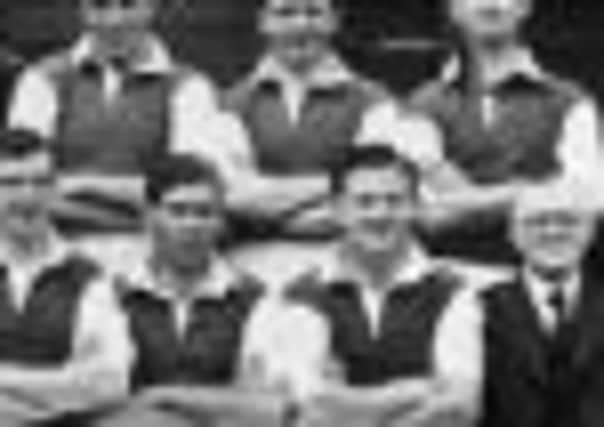Glenn Gibbons: High seas shaped Turnbull and Ormond


The recognition of their courage and fortitude is very likely, however, to have brought two old comrades-in-arms together in some celestial tavern, there to partake of “a wet”, the name they gave in their days as sailors to a celebratory quaff.
As the left-wing partnership in Hibernian’s Famous Five forward line, the late Eddie Turnbull and Willie Ormond were rarely short of an excuse to toast their achievements on the field of play. They would make much less fuss of their experiences at sea.
Advertisement
Hide AdAdvertisement
Hide AdWinston Churchill called the convoys “the worst journey in the world” without ever having made the trip. But this is one of those superlatives anyone would be permitted to use without the backing of experience. Pushing through the swell of a wintry Arctic Ocean to Murmansk or Archangel to supply a starving and freezing Russia would be most people’s idea of the worst journey in the world even without the malevolent attentions of enemy aircraft, battleships and submarines.
Ned, as Turnbull was known to his friends, was among those who survived the ordeal, while Willie, three years younger and, therefore, later into the war, simply had to endure the ever-present threat to life and limb whenever his vessel was on active service.
Anyone would have thought that playing football for the best team in the country would have been a sinecure for a 19-year-old with Ormond’s experiences when he joined Hibs in 1946. But Willie may have felt a certain guilt over his good fortune, as he seemed to spend the years thereafter making sure that even the game would consistently offer a severe test of his spirit and endurance.
In many cases, a broken leg can be sufficient at least to diminish a player’s effectiveness to the point of reducing him from exceptional to less than average. Willie suffered the injury three times and threw in a broken arm, possibly as a sop to the gods of spite and mischief.
In those days before advanced physiotherapy and sophisticated medical machinery, Willie devised a rehab of his own, although it appeared to be founded on the principle of what doesn’t kill you will make you stronger. His father-in-law was a Musselburgh lobster fisherman and Willie would join him on his boat, setting and retrieving his pots, and sitting with his leg dangling over the side, reaping the “benefits” of dragging the damaged limb through the freezing waters of the North Sea in the middle of the night. Nobody could argue that the treatment was not efficacious. Not only did he recover from the fractures, but so undiminished that he played until he was 35.
And yet, this was a tough little man whose personality would have elicited my mother’s ultimate compliment: “he’s just a wee lump of good nature.” When he became manager of Scotland and, as a consequence, available to a wider circle of players, media and others, some of the dimmer lights made the mistake of mistaking his unfailing bonhomie for softness.
It will surprise nobody to learn that neither Ned nor wee Willie calls to mind any Scottish footballer currently at work.